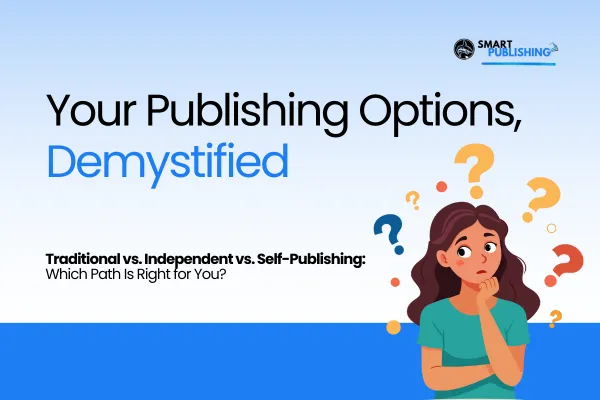
Traditional vs. Independent vs. Self-Publishing: Which Path Is Right for You?
Traditional vs. Independent vs. Self-Publishing: Which Path Is Right for You?
For most people, the idea of writing a book feels overwhelming. And then comes the next big question: How do I actually publish it?
This is where many authors freeze. They either don’t know their options or they misunderstand what each one involves. Today, I want to break down the three main publishing paths—traditional publishing, independent publishing, and self-publishing—so you can make the best decision for your goals.
📚 Traditional Publishing
Think Random House, HarperCollins, Penguin—the big names. Here’s how it works:
You typically need a literary agent (most publishers won’t accept submissions directly).
Agents only accept about 1–2% of manuscripts they review each year.
Even with an agent, only about 60–70% get picked up by a publisher.
If you’re one of the few who land a deal, you’ll likely get an advance of $5,000–$10,000 and earn about 10–20% royalties. The trade-off? You lose significant creative and financial control. Publishers prioritize what’s marketable to the masses—celebrity names, politicians, academics, and authors with large followings.
Traditional publishing works if you crave prestige and wide distribution—but it’s highly competitive and exclusive.
Self-Publishing
This route gives you full control—but also full responsibility. You’re handling:
Writing
Editing
Cover design
Formatting
ISBNs
Uploading to platforms like Amazon KDP
Marketing and launch strategy
The good news? The resources are out there—courses, checklists, and step-by-step guides (my book The One Hour Author covers it all). But it requires time, patience, and a willingness to manage a lot of moving parts.
If you’re detail-oriented and love learning the ins and outs of publishing, self-publishing may be the best fit.
Independent Publishing
This is where Smart Publishing lives. We call it the “white glove” approach—a hybrid between self-publishing and traditional. You maintain your rights and royalties, but you don’t have to do it all alone.
Independent publishers vary in scope, but at Smart Publishing we:
Help authors map their chapters before writing
Offer recording options for those who prefer speaking over typing
Handle transcription, editing, and design
Manage ISBNs, copyright pages, and industry standards
Guide launch-day planning and bestseller strategy
Some indie publishers only step in once your manuscript is finished, while others (like us) support you from idea to launch. The key is choosing the level of partnership you want.
Which Path Should You Choose?
Traditional publishing: Choose this if you want prestige, mass appeal, and don’t mind less control.
Self-publishing: Choose this if you want complete ownership and are comfortable doing the heavy lifting.
Independent publishing: Choose this if you want full ownership with expert support at every step.
There’s no one-size-fits-all answer. The best option depends on your goals, your timeline, and how much support you need.
Final Word
Publishing a book is a massive undertaking, but you don’t have to let it paralyze you. Know your options, choose the right path, and commit to seeing it through.
If your book represents your brand, your thought leadership, or your legacy, make sure it gets the professional finish it deserves.
Keep writing your story—because the world needs your voice.
—Renee
